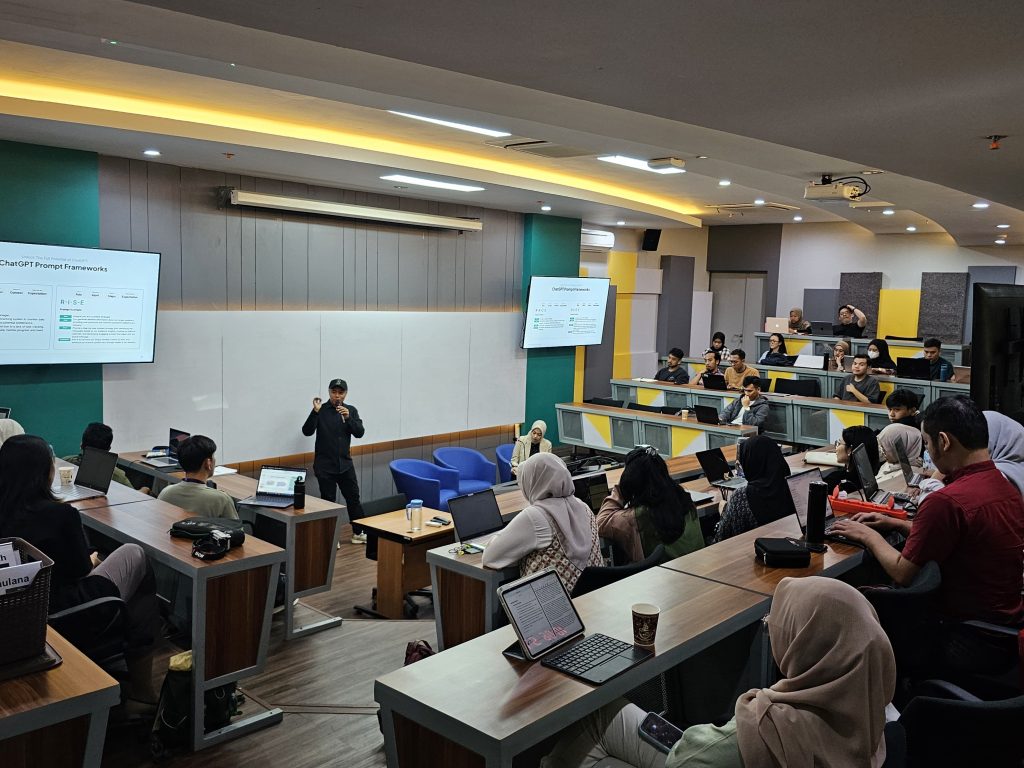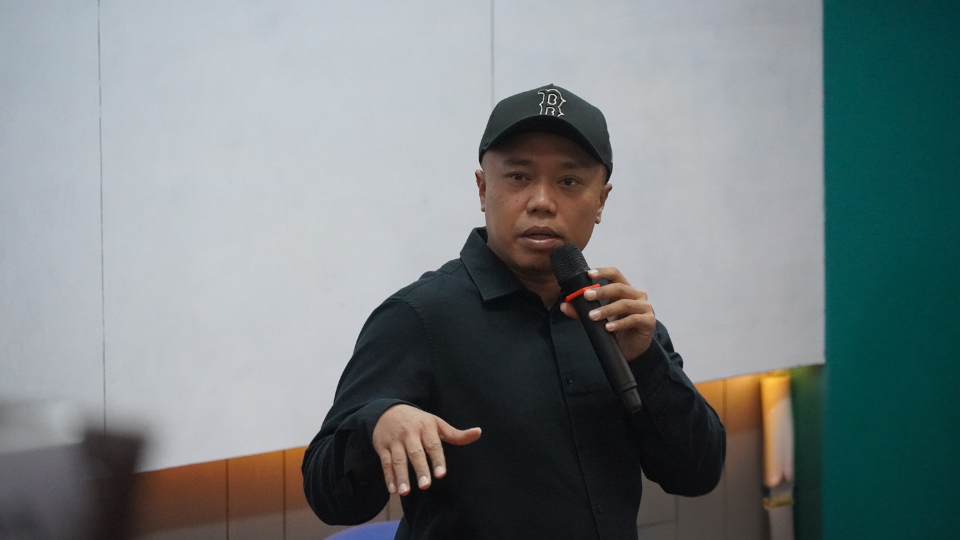The use of artificial intelligence (AI) has grown significantly in recent years, serving various purposes, such as predicting market trends, processing research data, and supporting strategic decision-making.
One prominent application of AI is generative AI, a tool that creates new content based on existing data. This technology can perform various tasks, from generating reports to analyzing academic dissertations.
“AI will not replace humans, but humans who use AI will replace those who do not,” said Muhammad Ajie, Chief Marketing Officer and Co-Founder of Feedloop, a company specializing in digital solutions for accelerating business transformation. Ajie made this statement during a seminar titled “Mastering GenAI: Boost Your Productivity in Education and Research,” held at Amphitheater 1, MBA ITB, on Friday (11/22). The seminar was part of the Industry-Based Learning Series course.
According to Ajie, generative AI enhances efficiency in task completion, accurately predicts trends, and supports personalized learning. Additionally, it fosters creativity by generating compelling data visualizations and content.
Ajie introduced several frameworks for optimizing generative AI tools, such as ChatGPT. Some frameworks for optimizing Generative AI such as Chat GPT include R-T-F (Role-Task-Format). This is useful for directing AI to produce output according to needs. While the T-A-G (Task-Action-Goal) framework provides clear instructions for specific tasks with specific goals.The B-A-B (Before-After-Bridge) framework helps analyze problems, determine desired outcomes, and bridge the two. While the C-A-R-E (Context-Action-Result-Example) principle ensures that AI understands the context so that the results are as expected, and the R-I-S-E (Role-Input-Steps-Expectation) framework supports AI-based strategy planning for business implementation.
During the seminar, Ajie, an alumnus of SBM ITB, invited participants to test these frameworks, highlighting the importance of crafting effective prompts. He demonstrated how poorly written prompts, such as “Write a marketing campaign for our new eco-friendly product,” yield generic results like the slogan “Go green with our product!” without detailing unique features or benefits. In contrast, well-designed prompts that specify the target audience, product feautures, and tone of communication produce more engaging and precise campaigns.
Ajie also underscored the critical need for regulations to ensure AI’s ethical and responsible use. While countries like Singapore and Australia have established clear frameworks for AI governance, Indonesia is still in the early stages of formulating regulations, including those related to personal data protection.
“AI relies heavily on data, but Indonesia’s data laws are not yet robust enough to support the responsible development of AI,” Ajie noted. He emphasized the risks of potential misuse, such as plagiarism in education and privacy violations in business, and stressed the importance of AI literacy.
“AI is a tool that unlocks new opportunities, but the responsibility for its use rests with humans. Those who use AI wisely will have a significant edge in this technological era,” Ajie concluded.





